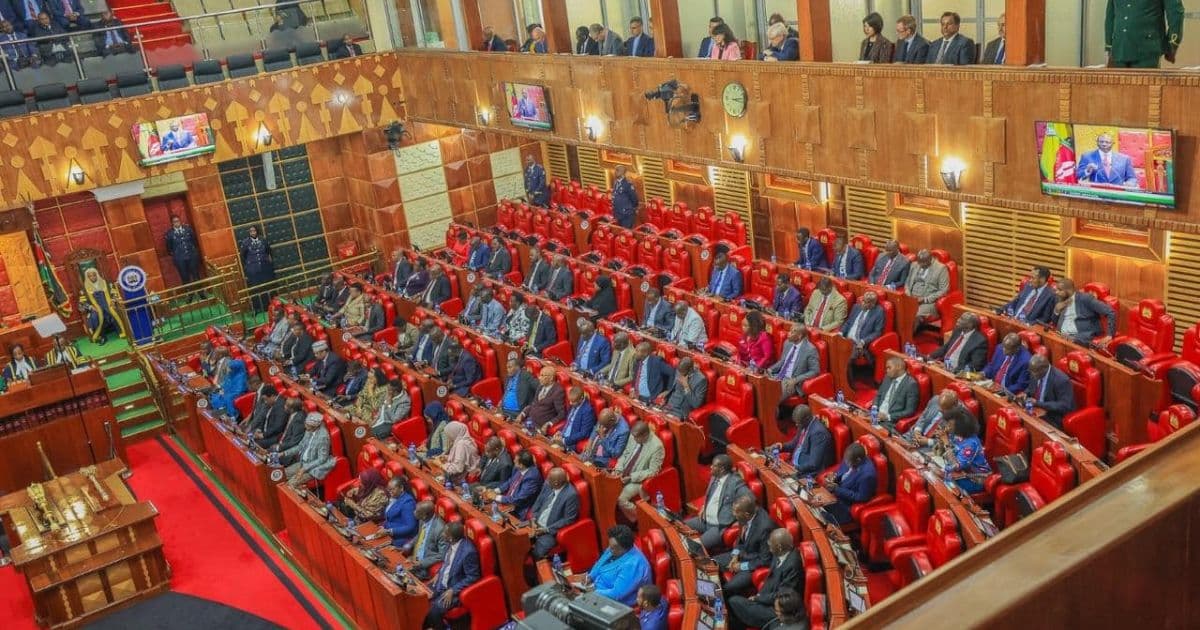We're loading the full news article for you. This includes the article content, images, author information, and related articles.
Kenyan legislators are tightening screws on corporate tax breaks, demanding firms provide concrete data on economic and social benefits for ordinary citizens before any incentives are approved, signaling a major policy shift amid rising revenue pressure.

In a decisive move to curb revenue leakage and ensure fiscal responsibility, Kenyan Members of Parliament have issued a stern directive to the private sector: no tax incentives will be granted without clear, evidence-backed proof of their direct benefit to the Kenyan public and the broader economy. This new policy stance, articulated during the 8th Speaker's Roundtable meeting in Mombasa on Monday, November 10, 2025, marks a significant pivot from previous practices, placing a heavy burden of proof on companies seeking tax relief.
Lawmakers, led by National Assembly Majority Leader Kimani Ichung'wah, accused the private sector of remaining silent on crucial legislative debates, including the contentious Finance Bill, 2024, and the recently enacted Cybercrime (Amendment) Act, 2025. "We felt abandoned," Mr. Ichung'wah stated, emphasizing that many of the provisions were designed to aid the business community. Going forward, he asserted, Parliament will no longer approve tax breaks or amnesties without quantifiable data demonstrating their value to ordinary Kenyans.
The legislators' hardened position comes against a backdrop of staggering revenue losses attributed to a lenient tax incentive regime. According to a report by the Parliamentary Budget Office (PBO), Kenya is projected to have lost over Sh300 billion in the current financial year due to tax exemptions. This has intensified pressure on the government's revenue collection targets, which have been missed by a significant margin in recent years, prompting a reconsideration of the country's taxation strategy.
The National Assembly's Finance and National Planning Committee, chaired by Molo MP Kuria Kimani, is already investigating 14 local manufacturing companies that received Value Added Tax (VAT) exemptions amounting to Sh15 billion. The probe aims to determine if these exemptions, granted to firms with a claimed cumulative investment of Sh93.53 billion, were merited. This investigation underscores a growing consensus within Parliament to reclaim its authority over fiscal matters, with proposals to amend the VAT Act to strip the Treasury Cabinet Secretary of the power to unilaterally grant tax exemptions and vest it solely in the National Assembly.
The debate over tax incentives is unfolding as the country implements the Finance Act 2025, which was signed into law on June 27, 2025, with most provisions taking effect from July 1, 2025. The Act introduces a mix of incentives and tighter regulations. Notably, it offers significant tax reductions for firms operating under the Nairobi International Financial Centre (NIFC) to attract investment. Certified startups under the NIFC will benefit from a 15% corporate income tax rate for their first three years, while larger firms investing at least KES 3 billion can receive the same rate for their first ten years.
However, the Act also introduces measures to widen the tax base and limit potential revenue loss. A key change is the capping of the period for carrying forward tax losses to five years, a move that could significantly impact capital-intensive industries. These legislative changes reflect the government's dual objectives: stimulating economic growth through targeted incentives while simultaneously ensuring fiscal sustainability by closing loopholes and demanding greater accountability.
This policy shift holds significant implications for Kenya's investment climate. For years, tax incentives have been a primary tool to attract Foreign Direct Investment (FDI) and stimulate sectors like manufacturing, housing, and agriculture. Proponents argue that these breaks are necessary to offset challenges such as high operational costs and infrastructure deficits. However, critics, including the PBO and international bodies, have long contended that these incentives lead to a 'race to the bottom' and erode the tax base without a corresponding, proven economic benefit.
The new requirement for empirical evidence of public benefit could level the playing field, ensuring that only investments with genuine, positive spillovers—such as job creation, technology transfer, and local sourcing—are rewarded. This aligns with the findings of a 2024 report by the Institute of Public Finance, which highlighted the need for better reporting and evaluation of tax expenditures to assess their effectiveness and equity. The Kenya Private Sector Alliance (KEPSA) has been in continuous dialogue with the Kenya Revenue Authority (KRA) and Parliament, advocating for a predictable and practical tax regime that supports business growth while contributing to national development goals.
As East Africa's economic hub, Kenya's fiscal policy decisions have a ripple effect across the region. A more stringent, data-driven approach to tax incentives in Kenya could influence neighboring countries to re-evaluate their own policies, potentially leading to a more harmonized and transparent fiscal environment in the East African Community. For businesses operating in Kenya, the message from Parliament is clear: the era of easily obtained tax breaks is over. The future of corporate incentives will be defined by demonstrable contributions to the nation's economic and social welfare.
Keep the conversation in one place—threads here stay linked to the story and in the forums.
Sign in to start a discussion
Start a conversation about this story and keep it linked here.
Other hot threads
E-sports and Gaming Community in Kenya
Active 9 months ago
The Role of Technology in Modern Agriculture (AgriTech)
Active 9 months ago
Popular Recreational Activities Across Counties
Active 9 months ago
Investing in Youth Sports Development Programs
Active 9 months ago
Key figures and persons of interest featured in this article